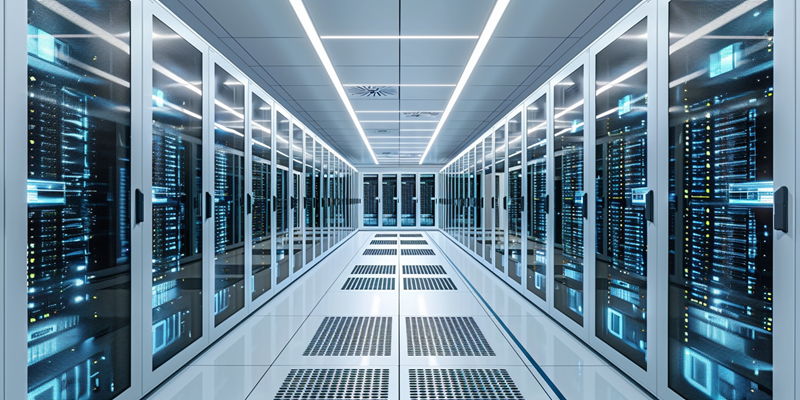The Gulf Cooperation Council (GCC) region is undergoing a significant digital shift, with data centers at the forefront of this transformation. These hubs of information technology are not just supporting existing digital demands but are foundational to the region’s vision for a diversified economy and modernized urban landscapes. Understanding their evolving role provides insight into the future of the GCC’s digital landscape.
The Critical Role of Data Centers
The Demand for Robust Digital Infrastructure
The GCC has seen a substantial increase in the uptake of digital services for both personal and professional use. Data centers have become central to this shift, propelling forward sectors such as e-commerce, which relies heavily on dependable online platforms. The expansion of remote work arrangements and a surge in online services have further stressed the need for robust and scalable data centers that can accommodate the soaring volumes of data traffic and transactions.
Responding to Challenges within the GCC
Data centers within the GCC have to confront environmental challenges not commonly faced in other regions. The extreme temperatures and frequent sand exposure necessitate specialized infrastructure. For instance, cooling systems must be particularly robust to ensure equipment operates within safe thermal thresholds. The architecture of these facilities has to be resilient against sand damage, which affects not only the physical integrity of the structures but also the precision equipment housed within.
Prioritizing Sustainability and Efficiency
Energy and Water Usage in Data Centers
In an area known for its scarcity of water and high energy use, the GCC’s data centers are pivotal players. Aware of their substantial impact on resources, there is a concentrated effort to enhance sustainability. Incorporating energy-efficient designs and green technology has become a necessity. Renewable energy integration and water recycling methods are progressively adopted to curtail the environmental footprint of these data-intensive powerhouses.
Implementing Green Technology Solutions
Cutting-edge cooling systems and energy management solutions are increasingly being implemented across data centers in the region. These technologies not only reduce the ecological impact but also lead to operational cost savings, showcasing a win-win situation for the economy and the environment. Sustainable practices and technologies play a significant role in advancing the long-term viability of data centers in the GCC.
Navigating GCC Regulations and Security Measures
Regulatory Frameworks and Data Privacy
The GCC’s data centers operate within a labyrinthine regulatory framework, matched only by the complexity of today’s networked world. Data privacy laws and the need to align with both local and international standards add to the intricate operational requirements. Organizations must navigate these regulations diligently to ensure compliance and maintain trust in their services.
Security Concerns in the Digital Age
Security, both physical and digital, has become a paramount concern for data centers. There is a necessity for a fortified infrastructure to mitigate threats, ranging from cyber-attacks to natural disasters. Facilities are increasingly equipped with state-of-the-art surveillance and stringent access controls, while their digital counterparts are fortified with progressive cybersecurity measures and continuous monitoring systems to ensure the integrity and confidentiality of data.
The Integration of Infrastructure and Lifestyle
The Role of Data Centers in Urban Development
The proliferation of data centers is closely linked to urban development, a connection exemplified by projects like Dubai South. Aside from providing critical digital infrastructure, these projects resonate with the lifestyle aspirations of the region, blending technology seamlessly with luxury living. Technology and opulence converge, demonstrating the GCC’s commitment to creating integrated, future-forward urban spaces.
Impact on Tourism and Economy
Data centers are playing a critical role in the GCC’s embrace of a major digital transformation. These centers are essential not only for meeting current digital needs but also for realizing the region’s goals of economic diversification and urban modernization. As these countries move away from oil dependency, data centers are becoming instrumental in fostering innovation and supporting a variety of new industries. Amid this shift, the construction and upgrading of data centers have become a priority, ensuring that the infrastructure keeps pace with the increasing data demands and the proliferation of smart city projects. Consequently, data centers are rapidly becoming the backbone of the GCC’s digital aspirations, offering a glimpse into the expansive digital future of the region. As the GCC advances its digital agenda, the evolving role of data centers underscores their importance in achieving a connected, technologically advanced, and economically robust Gulf.

